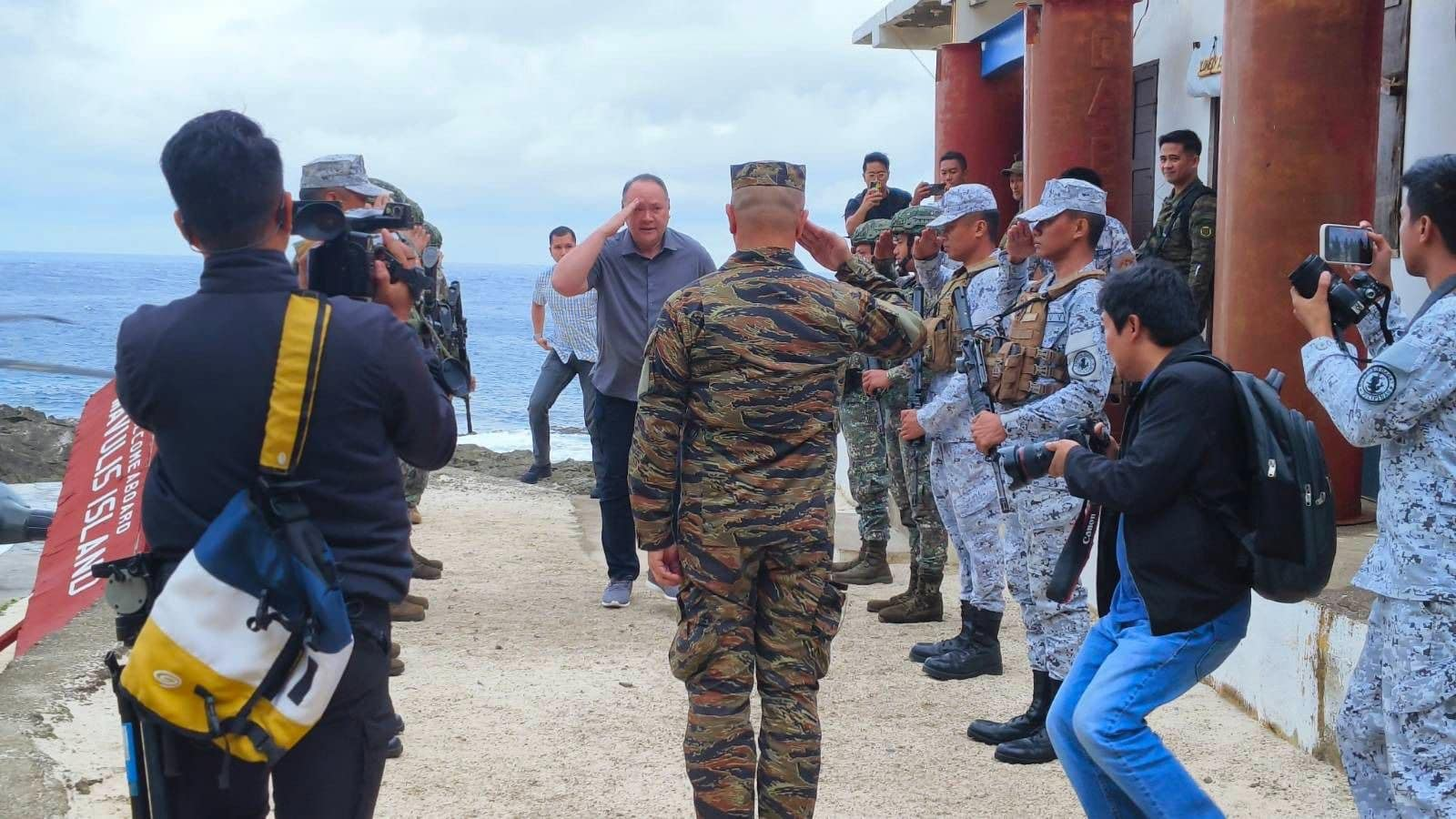
The Philippines has been butting heads with China for years over the disputed South China Sea, but increasingly the Southeast Asian country appears to be preparing for another potential battleground: Taiwan.
Earlier this week, defense chief Gilberto Teodoro visited a naval detachment and ordered a military buildup on Mavulis, the northernmost island of the province of Batanes, which Teodoro described as the “spearhead of the Philippines.”
China wasn’t pleased with the development: in a press conference Thursday, Chinese Foreign Ministry Spokesperson Wang Wenbin warned that the Philippines must “tread carefully and don’t play with fire on this [Taiwan] question to avoid being manipulated and eventually hurt.”
Given the Philippines’ proximity (Mavulis is only 88 miles from the southern tip of Taiwan), President Ferdinand Marcos Jr. said last year that it’s “very hard to imagine” a scenario in which his archipelagic nation remains untouched by any conflict over the self-governed island that China claims sovereignty over.
The Philippines does not have official diplomatic ties with Taiwan and recognizes Beijing as the government of “One China,” but under Marcos it has strengthened its military ties with Taiwan allies, including the U.S. and Japan, and it could play a key role in assisting those countries should China launch a surprise invasion of the island.
Read More: The U.S. Military’s Legacy in the Philippines: Thousands of Children Left Behind
“In an event of invasion, the first 48 hours are extremely important, because that’s the window within which China will take advantage of its geographic proximity, and it will take some time before the American Navy Indo-Pacific Command, whether it’s in Hawaii or Guam, or in Japan, can respond to a major contingency,” Richard Heydarian, a senior lecturer at the University of the Philippines’ Asian Center, tells TIME. “That’s where the Philippines comes in.”
The Philippines need not even commit its own troops to such a war to act as a deterrent, Heydarian explains. It can significantly change the calculus for China by simply keeping a close eye on Taiwan and acting as an outpost for its allies. “If the Philippines and Japan and the U.S. cooperate, there’ll be sufficient amount of preparation, sufficient amount of American forward deployment presence, and sufficient amount of interoperability and potential coordination among U.S. and its allies, should that invasion happen.”
But it’s not just out of deference to its allies that the Philippines has an interest in preventing a Chinese takeover of Taiwan. More than 160,000 Filipinos work overseas in Taiwan, and Marcos has said allowing the U.S. access to Philippine bases would be “useful” in achieving their rescue, which he described as “of primordial importance.”
Lucio Pitlo III, research fellow at the Manila-based thinktank Asia-Pacific Pathways to Progress Foundation, also tells TIME that Taiwan’s future is inextricably linked to the ongoing South China Sea dispute with China that the Philippines seems to prioritize: “If the mainland took over Taiwan, then that means that the pressure on the Philippines coming from Beijing would not only emanate from the west, but also from the north,” Pitlo said. “The status quo works for the Philippines.”
China “likes the Philippines in a weak position in order to consolidate its grip in its perceived backyard,” Joshua Espeña, vice president of the Manila-based think tank International Development and Security Cooperation, tells TIME. But contrary to how Beijing spins it, Espeña argues, the Philippines is no provocateur, instead acting as an equalizer in the Indo-Pacific: “We are trying to stabilize the balance of power.”
More Must-Reads From TIME
- The 100 Most Influential People of 2024
- Coco Gauff Is Playing for Herself Now
- Scenes From Pro-Palestinian Encampments Across U.S. Universities
- 6 Compliments That Land Every Time
- If You're Dating Right Now , You're Brave: Column
- The AI That Could Heal a Divided Internet
- Fallout Is a Brilliant Model for the Future of Video Game Adaptations
- Want Weekly Recs on What to Watch, Read, and More? Sign Up for Worth Your Time
Contact us at letters@time.com